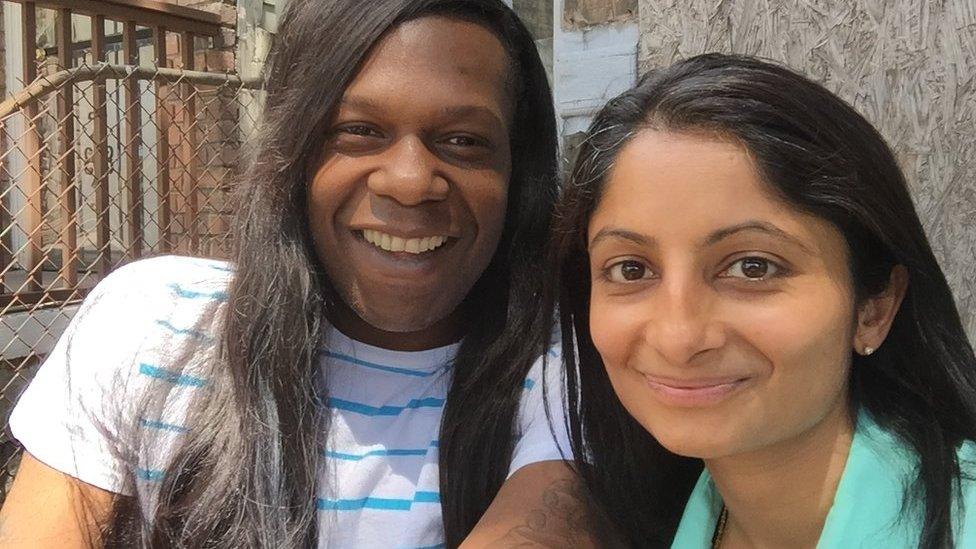Hurricane Katrina: New Orleans marks 10 years since disaster
- Published
Traditional New Orleans parades are part of the anniversary
Commemorations have taken place in the US city of New Orleans to mark the 10th anniversary of Hurricane Katrina.
At a memorial service, Mayor Mitch Landrieu recalled how residents had turned to each other for support.
Former President Bill Clinton later spoke at a concert in the city.
Hurricane Katrina killed nearly 2,000 people and displaced one million. It was the most expensive natural disaster in US history and caused destruction along the Gulf coast.
In New Orleans, the failure of the levee system left about 80% of the city under water.
Mayor Landrieu led a sombre tribute to the 83 unidentified victims whose bodies lie in mausoleums at the city's Hurricane Katrina Memorial.
"Though they are unnamed, they are not unclaimed because we claim them," he said.
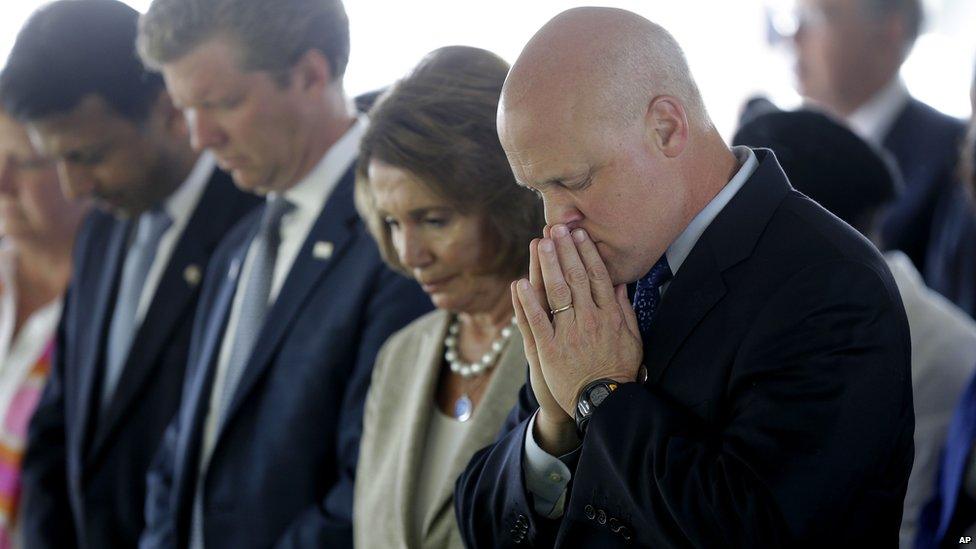
Mayor Mitch Landrieu, right, said New Orleans was unbroken
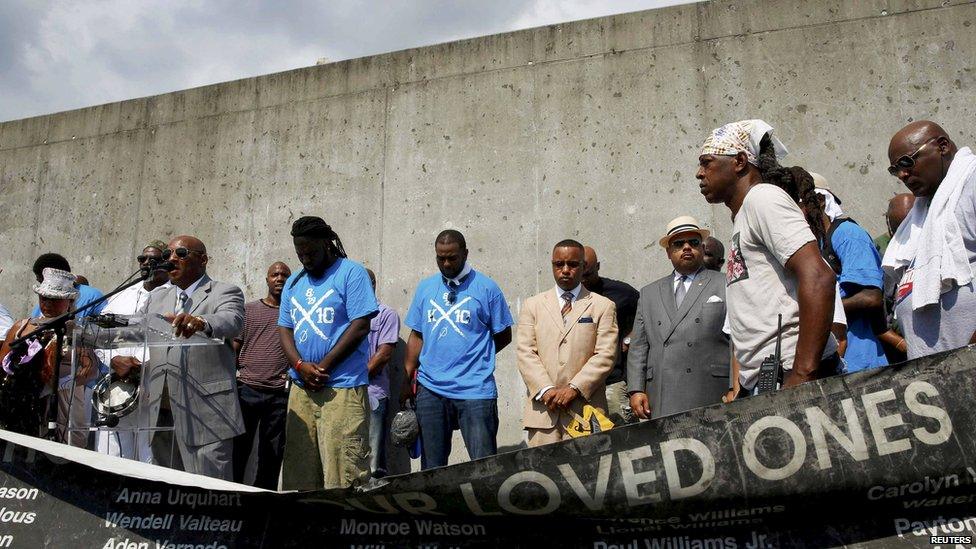
A ceremony was held at the levee in the Lower Ninth Ward
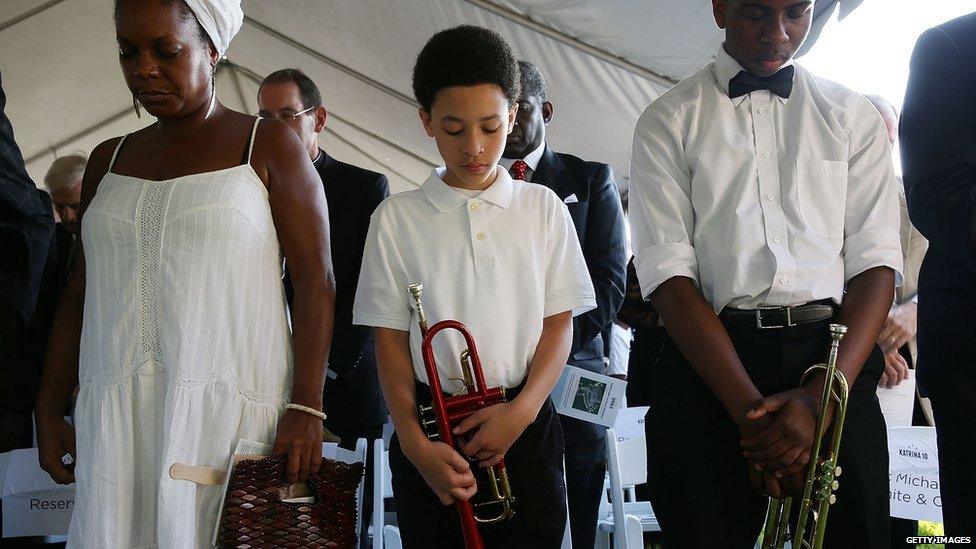
Prayers were said at the Hurricane Katrina Memorial
"We saved each other," the mayor added. "New Orleans will be unbowed and unbroken."
Residents and community activists also gathered at the levee in the Lower Ninth Ward, where storm waters broke through and flooded the district.

At the scene: Rajini Vaidyanathan, BBC News, New Orleans
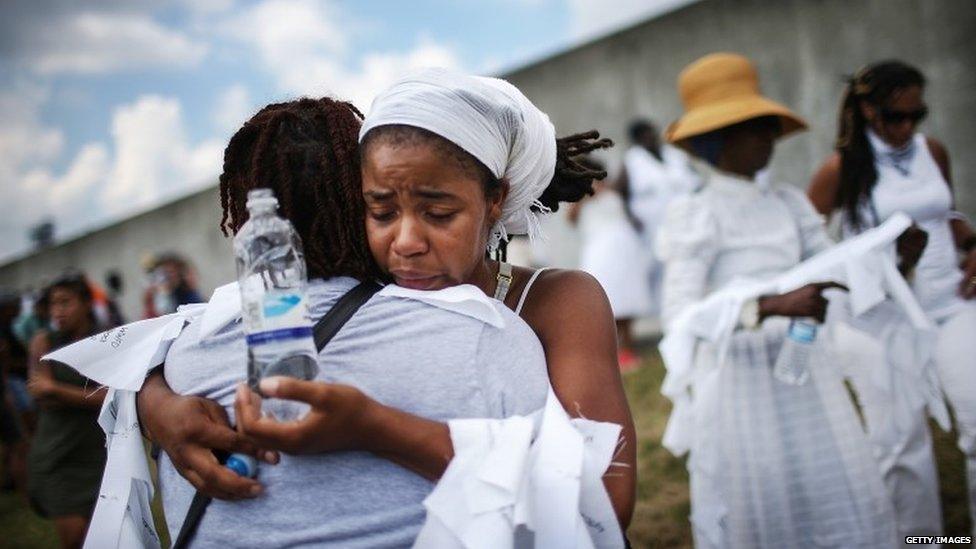
Today the sun shone brightly in New Orleans. A decade ago Hurricane Katrina brought havoc to these same skies.
The city's Lower Ninth Ward was hit the hardest - at a wreath laying ceremony for victims there, some found the memories too hard to bear. As a solitary trumpet played in honour of the dead, one woman wailed uncontrollably. Everyone felt her pain.
But New Orleans is famous for its party spirit - and the day was also about moving forward. Large parts of the city have been rebuilt. But as marching bands paraded past abandoned homes untouched since the storm sucked the humanity from them, many told me much more needs to be done.
Katrina stole lives and homes, but not the city's heartbeat. As the world looks on a decade later, people in New Orleans, and across the country's Gulf Coast, want to ensure they're never forgotten.

After speeches, a parade took place through the neighbourhood, with some participants in colourful Mardi Gras dress.
"It is kind of bittersweet. We want to celebrate because we are still here, but a lot of people are not," said Lower Ninth Ward resident Natasha Green, 36.
"It is important to remember what we went through here."
Throughout the day, thousands took part in traditional musical parades through the city's streets.
Photographer Mario Tama tells the BBC what it was like to cover the disaster
Former President Clinton later spoke at a free concert at the city's Smoothie King Center.
He said the sheer magnitude of what had been accomplished in rebuilding the city should not be underestimated, but that more work needed to be done so that the lines that divided communities - such as race and wealth - could be erased.
A ceremony was also held at the Superdome arena that housed thousands of displaced people after the storm.
'Left out'
President Barack Obama visited the Lower Ninth Ward on Thursday, praising "the extraordinary resilience of this city and its people".
But although the city has largely recovered from the disaster, some - particularly from the African-American community - feel left behind.
Watch how the BBC covered Katrina 10 years ago
Dwight McKenna, publisher of African-American newspaper the New Orleans Tribune, told the BBC that rebuilt public housing projects were now too expensive for many poor black people to move back to.
"The population of New Orleans... is 100,000 less black people than prior to Katrina. Black people have been left out of the recovery altogether," he said.
On Friday, former President George W Bush visited New Orleans. His administration was criticised at the time over its slow response and the issue remains a source of deep resentment in the city.
In a speech, he said he would never forget the images of "misery and ruin".
- Published29 August 2015
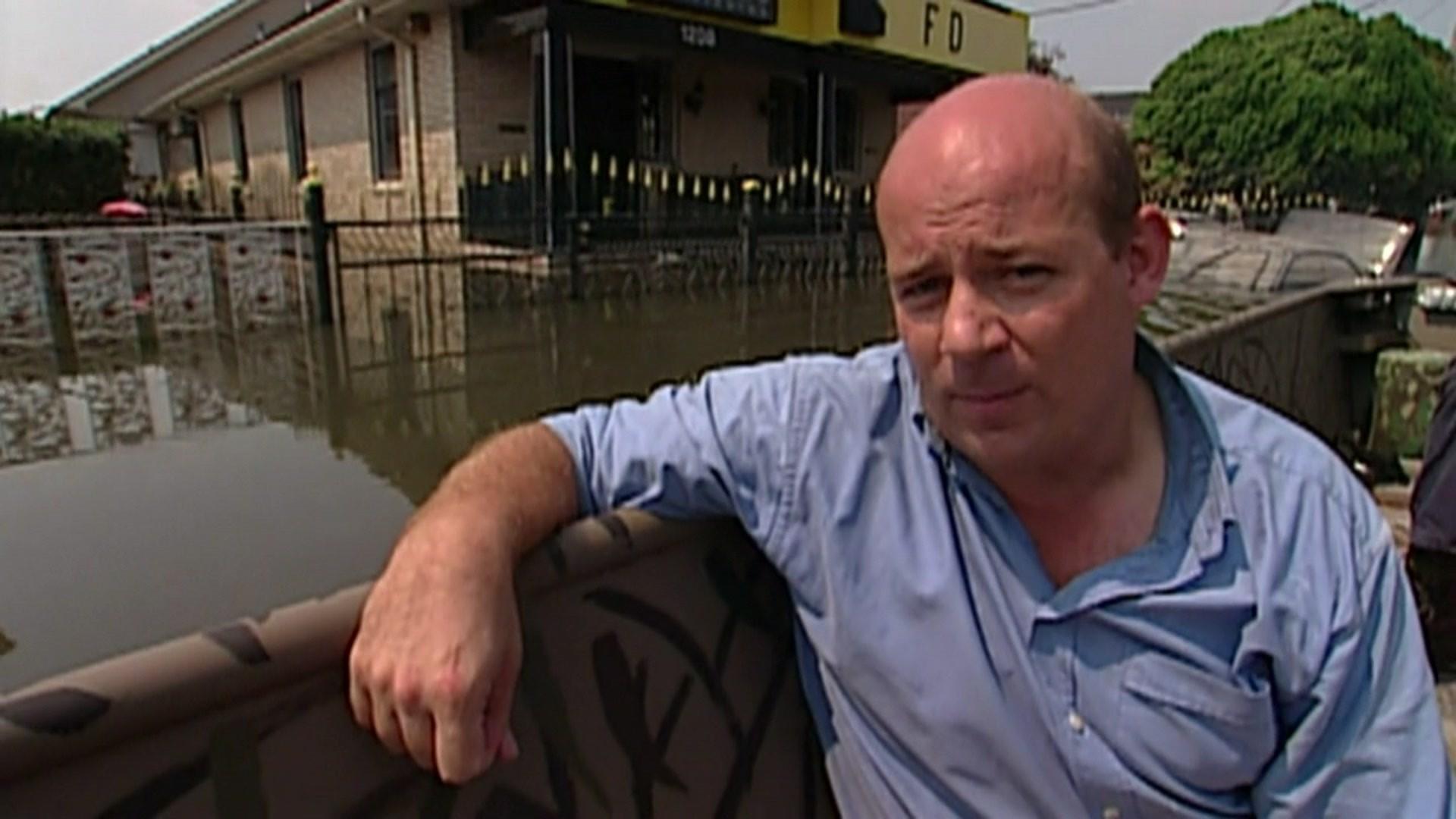
- Published29 August 2010
- Published20 August 2015
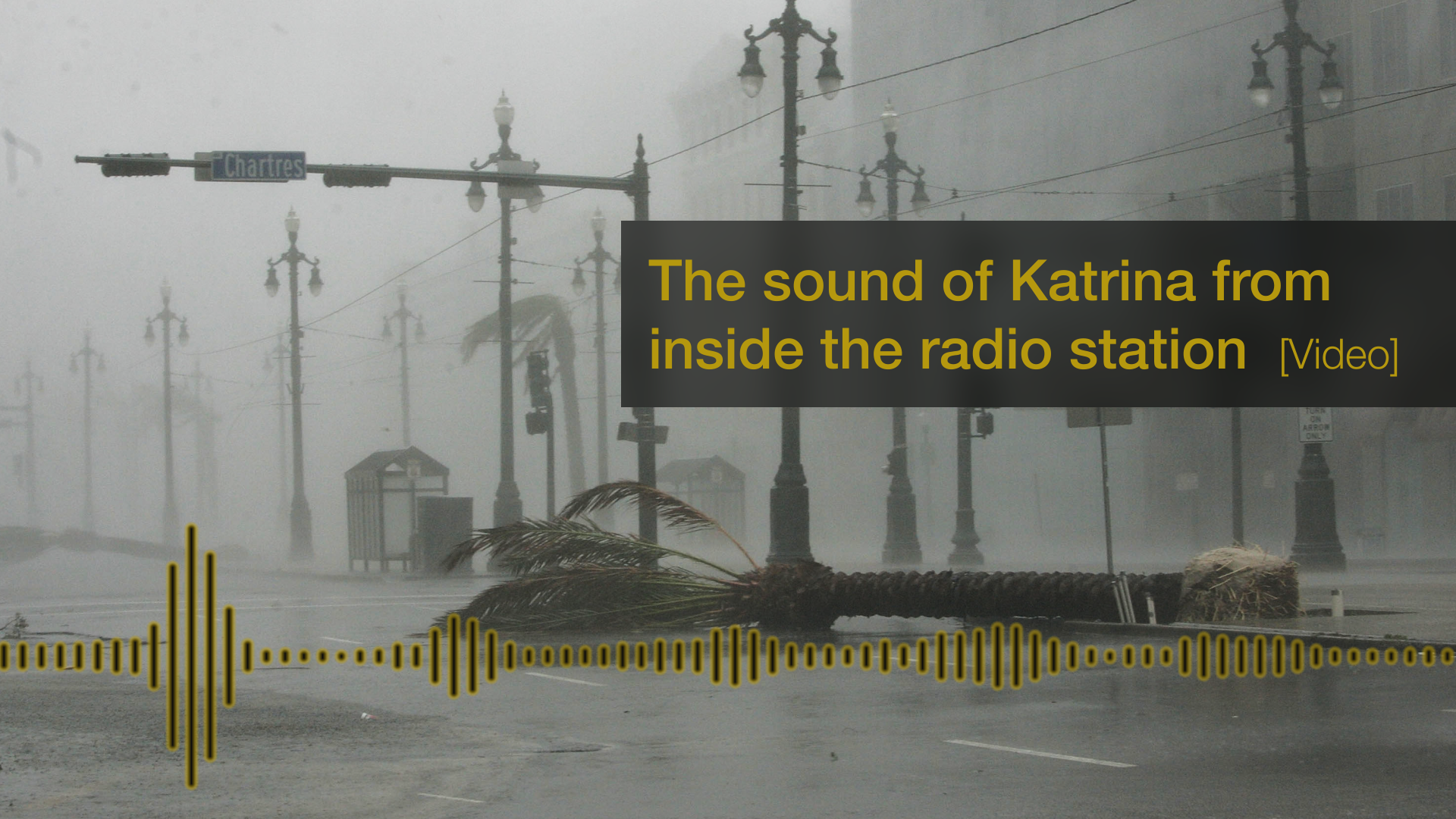
- Published20 August 2015
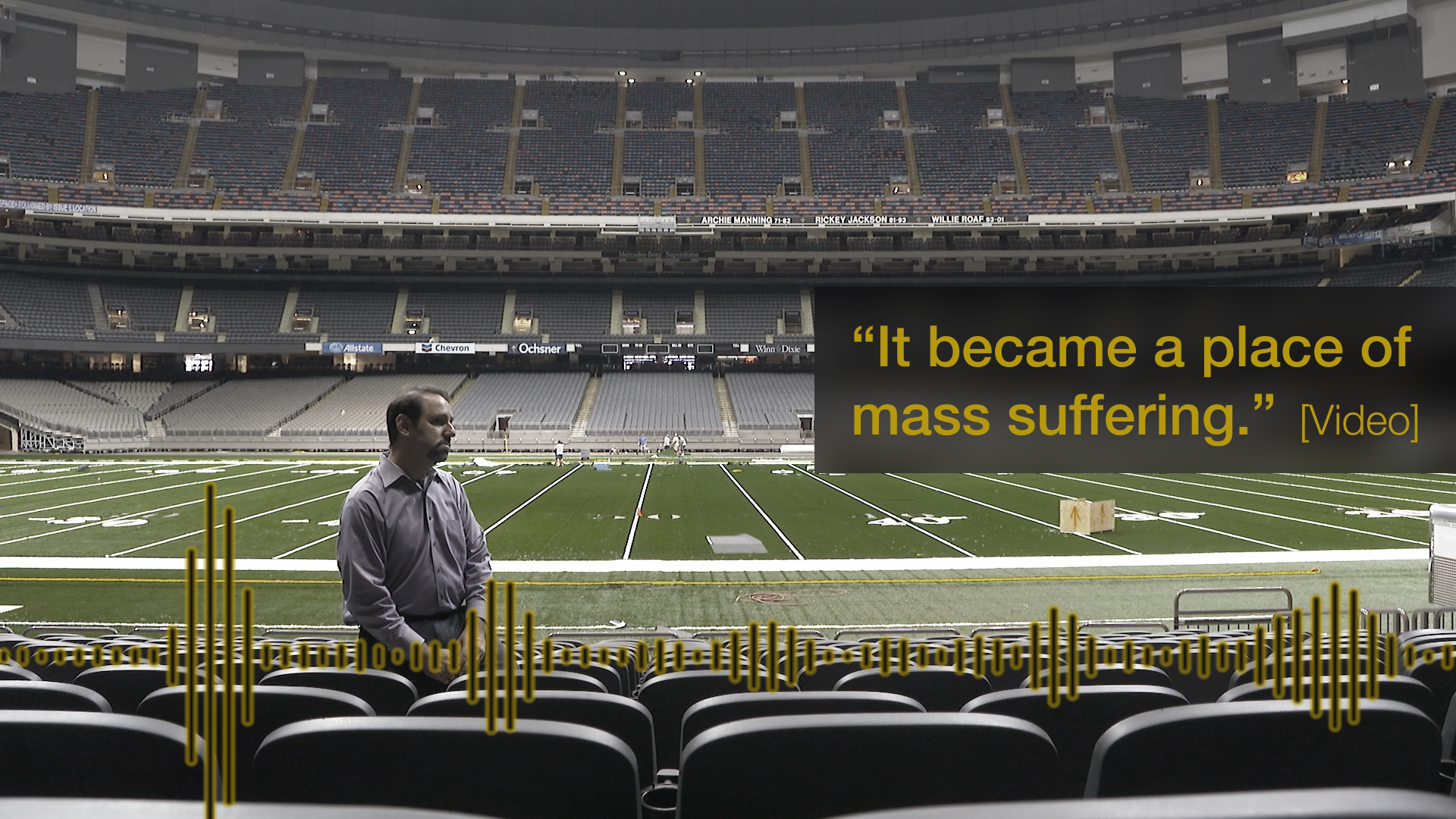
- Published27 August 2015
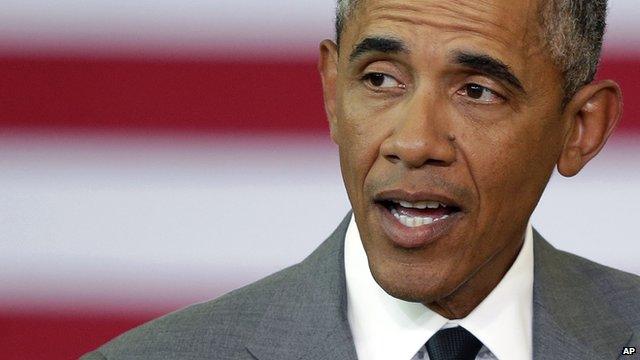
- Published29 August 2015
